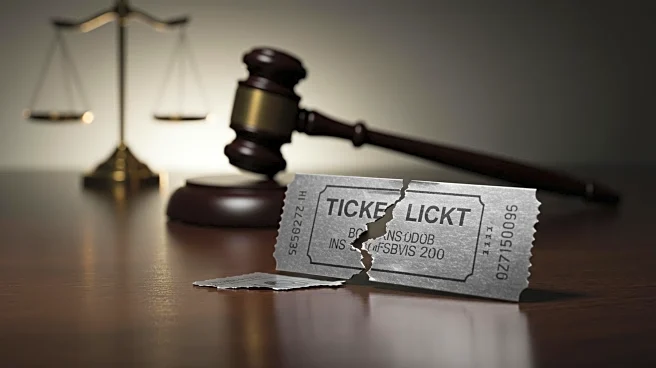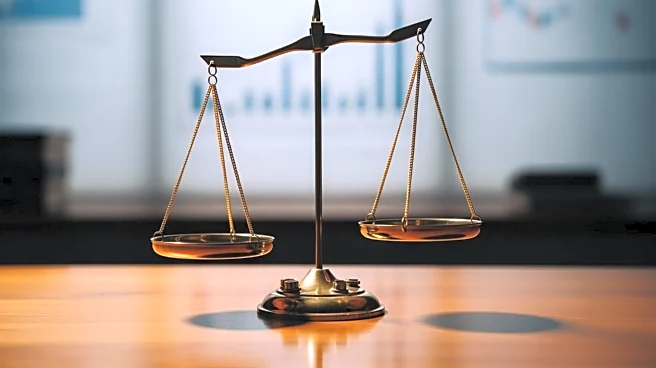What's Happening?
The Federal Trade Commission (FTC) has filed a lawsuit against Key Investment Group, a Maryland-based ticket broker, accusing the company of illegally purchasing and reselling hundreds of thousands of tickets for profit. The lawsuit, filed in U.S. District Court in Maryland, claims that the company bypassed Ticketmaster's security measures to purchase tickets beyond the allowed limits. Key Investment Group allegedly resold these tickets at inflated prices, making millions in profit. The FTC's complaint highlights that the company used various names, including Epic Seats and Totally Tix LLC, to conduct its operations. The group reportedly purchased 379,776 tickets from Ticketmaster, costing nearly $57 million, and resold them for about $64 million. Among the events targeted were Taylor Swift's Eras Tour and a Bruce Springsteen concert, where the company allegedly violated ticket purchase limits.
Why It's Important?
This lawsuit underscores the ongoing challenges in the ticketing industry, particularly concerning the resale market. The FTC's action aims to protect consumers from inflated ticket prices and ensure fair access to popular events. The case highlights the need for robust security measures by ticketing platforms like Ticketmaster to prevent unauthorized reselling. If successful, the lawsuit could lead to stricter regulations and enforcement in the secondary ticket market, potentially benefiting consumers by reducing ticket prices and increasing availability. However, Key Investment Group argues that the FTC's actions threaten the secondary market, which could impact businesses that rely on ticket resales.
What's Next?
The legal proceedings will determine whether Key Investment Group's practices violated federal laws, including the FTC Act and the Better Online Ticket Sales Act. The outcome could set a precedent for how ticket reselling is regulated in the future. Stakeholders in the ticketing industry, including other brokers and ticketing platforms, will be closely monitoring the case. Depending on the court's decision, there may be increased pressure on companies to enhance security measures and compliance with ticket purchase limits.









